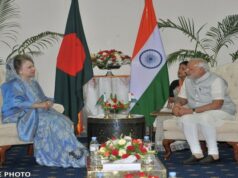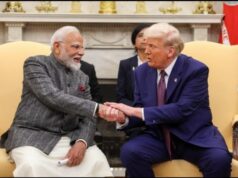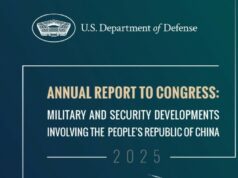For months Western media and think tanks were busy dissecting the possibility of a consecutive third term in power for India’s Prime Minister Narendra Modi and its possible negative consequences – in their view – about backsliding of democracy in India, erosion of institutional independence and rising majoritarian tendencies and more.
The outcome of the world’s largest election may not have been on the expected lines for the ruling Bharatiya Janata Party or BJP since it fell short of majority on its own in the lower house of parliament but Prime Minister Modi is going nowhere. He is all set to take office for the third time on Sunday, albeit at the head of a multi-party coalition.
So, will Modi 3.0 be any different than the previous two terms? This is certainly unfamiliar territory for Modi. For over two decades, he has headed governments with full majority, first as chief minster of Gujarat and then as prime minister in the last 10 years.
Modi 3.0 suggests he may have to curb his instincts, accommodate demands from fickle allies on domestic policies but one aspect in which the new government is likely to continue its previous approach is in the foreign policy space.
A former ambassador said the impact on foreign policy would be minimal. Modi has the numbers and the initiatives over the last decade will continue. He also made the point that “India’s stature has been enhanced because of this election result, concerns about human and minority rights would have quietened, India at the end of the day is a functioning democracy.”
Chandrababu Naidu of the Telegu Desam Party or for that matter Nitish Kumar of the Janata Dal (United), are not known to comment on foreign policy issues. But Naidu transformed Hyderabad into an IT capital and is known to enjoy a good equation with the US tech and business community. The West needs India as much as India needs its technology and investment?
To understand how Washington DC and European capitals look at the election outcome in India and how are they likely to approach a Modi third term, I spoke with Richard Rossow, Wadhwani Chair in U.S. India Policy Studies at the Center for Strategic and International Studies and well-known India observer and Velina Tchakarova, a Vienna-based commentator and analyst who especially focuses on Russia, China, Europe and India.
Nitin A. Gokhale is a media entrepreneur, one of South Asia's leading strategic affairs analyst and author of over a dozen books so far on military history, insurgencies and wars.
Starting his career in journalism in 1983, he has since led teams of journalists across media platforms.
A specialist in conflict coverage, Gokhale has covered the insurgencies in India’s North-East, the 1999 Kargil conflict and Sri Lanka’s Eelam War IV between 2006-2009.
Gokhale now travels across the globe to speak at seminars and conferences, and lecture at India’s premier defence colleges. He has founded three niche portals, Bharatshakti.in, stratnewsglobal.com and Interstellar.news.




